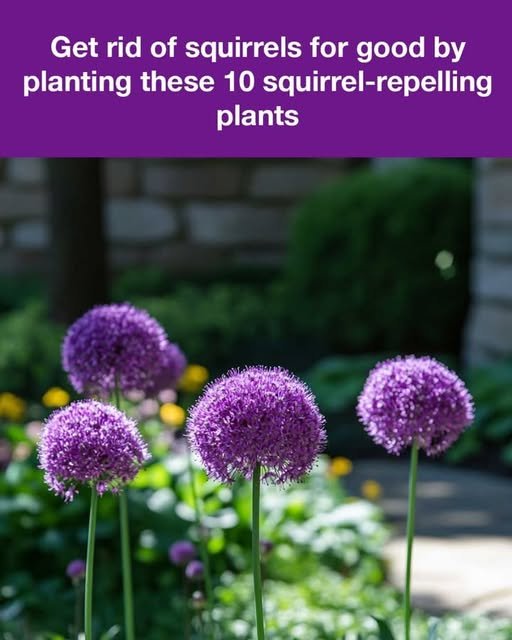Squirrels, while charming to observe from a distance, can become a nuisance when they invade gardens and yards, digging up bulbs, eating fruits, and causing general chaos. For those looking to protect their gardens without resorting to harsh chemicals or traps, planting squirrel-repelling plants offers a natural and aesthetically pleasing solution. These plants not only deter squirrels but can also enhance the beauty and biodiversity of your garden.
Understanding Squirrel Behavior and Preferences
Squirrels are naturally curious creatures with a penchant for foraging. They are attracted to gardens because of the abundance of food sources such as nuts, seeds, fruits, and bulbs. Understanding their behavior is key to deterring them. Squirrels rely heavily on their sense of smell to locate food, so plants with strong scents or those that are unpalatable can effectively keep them at bay. Additionally, squirrels are deterred by certain textures and tastes, which can be leveraged to protect your garden.
The Importance of Using Natural Repellents
Using natural repellents like specific plants to deter squirrels is beneficial for several reasons. Firstly, it avoids the use of harmful chemicals that can damage the environment and pose risks to pets and other wildlife. Secondly, natural repellents can be a sustainable and cost-effective solution, as they often require less maintenance and can thrive in various conditions. Lastly, these plants can contribute to the ecological balance of your garden, attracting beneficial insects and other wildlife.
Top 10 Squirrel-Repelling Plants to Consider
To effectively repel squirrels, consider incorporating a variety of plants known for their deterrent properties. These include alliums, daffodils, fritillaries, galanthus, hyacinths, lily of the valley, marigolds, mint, rosemary, and lavender. Each of these plants offers unique characteristics that make them unappealing to squirrels, whether through scent, taste, or texture.
Alliums: A Natural Deterrent for Squirrels
Alliums, part of the onion family, are highly effective at deterring squirrels due to their strong odor. This includes garlic, onions, and ornamental alliums. The pungent smell of these plants is unpleasant to squirrels, making them an excellent choice for borders or interplanting with other vulnerable plants. Alliums are also easy to grow and can add striking visual interest to your garden with their unique spherical blooms.
How to Effectively Plant and Maintain Squirrel-Repelling Plants
To maximize the effectiveness of squirrel-repelling plants, consider strategic planting. Place these plants around the perimeter of your garden or near vulnerable plants to create a natural barrier. Ensure they are planted in well-drained soil and receive adequate sunlight, as most of these plants thrive in sunny conditions. Regular maintenance, such as pruning and deadheading, will keep the plants healthy and their deterrent properties strong.
Additional Tips for Keeping Squirrels at Bay
In addition to planting squirrel-repelling plants, there are other strategies you can employ to keep squirrels away. Removing food sources, such as fallen nuts and fruits, can reduce their attraction to your garden. Installing physical barriers like mesh or netting around vulnerable plants can provide extra protection. Additionally, using motion-activated sprinklers or ultrasonic repellents can further deter squirrels without causing harm.
Conclusion: Achieving a Squirrel-Free Garden
By incorporating squirrel-repelling plants into your garden, you can enjoy a beautiful and thriving outdoor space without the disruption caused by these furry intruders. Combining these natural deterrents with other preventive measures will create a holistic approach to squirrel management, ensuring your garden remains a peaceful haven for you and other beneficial wildlife.



